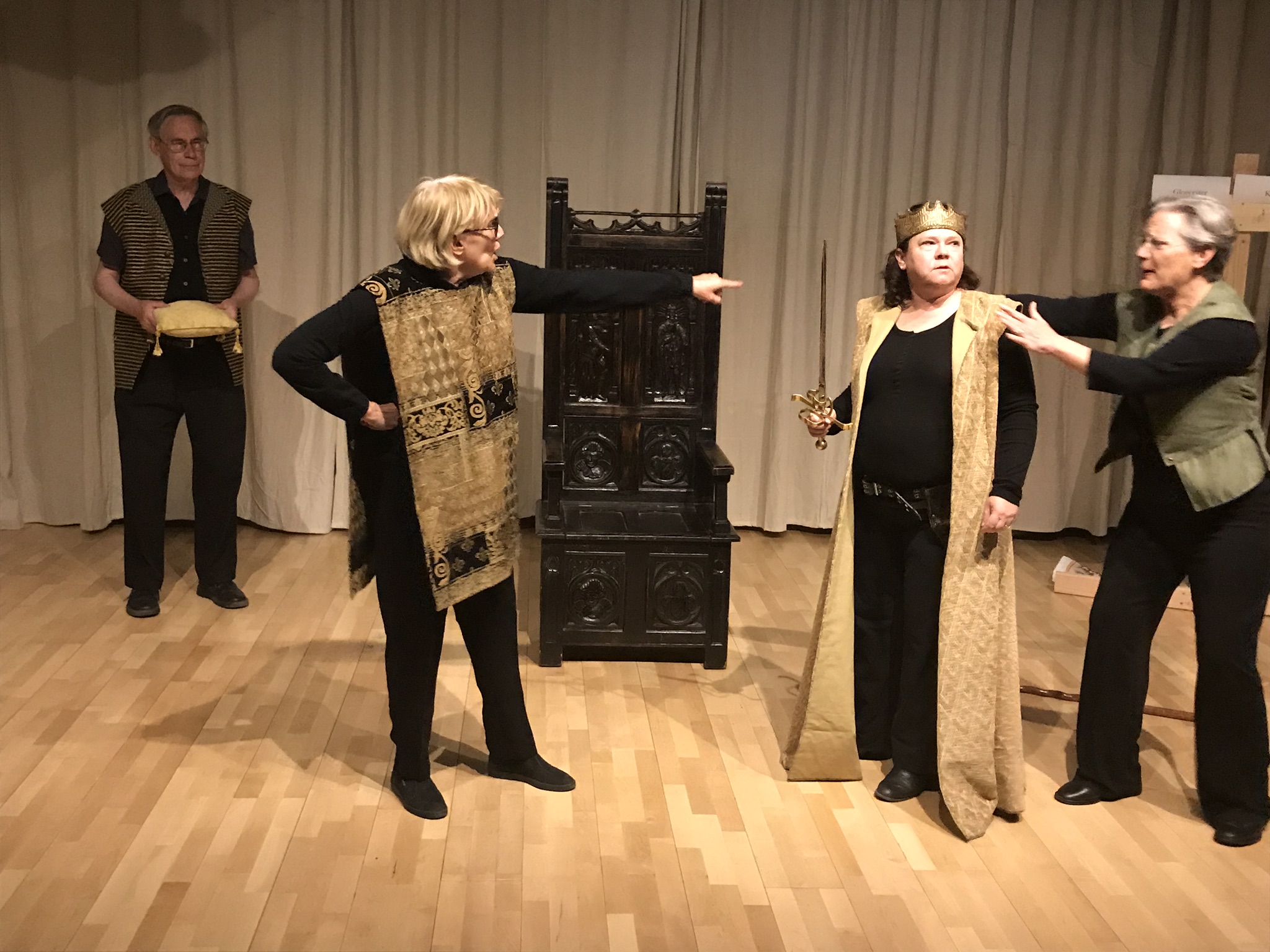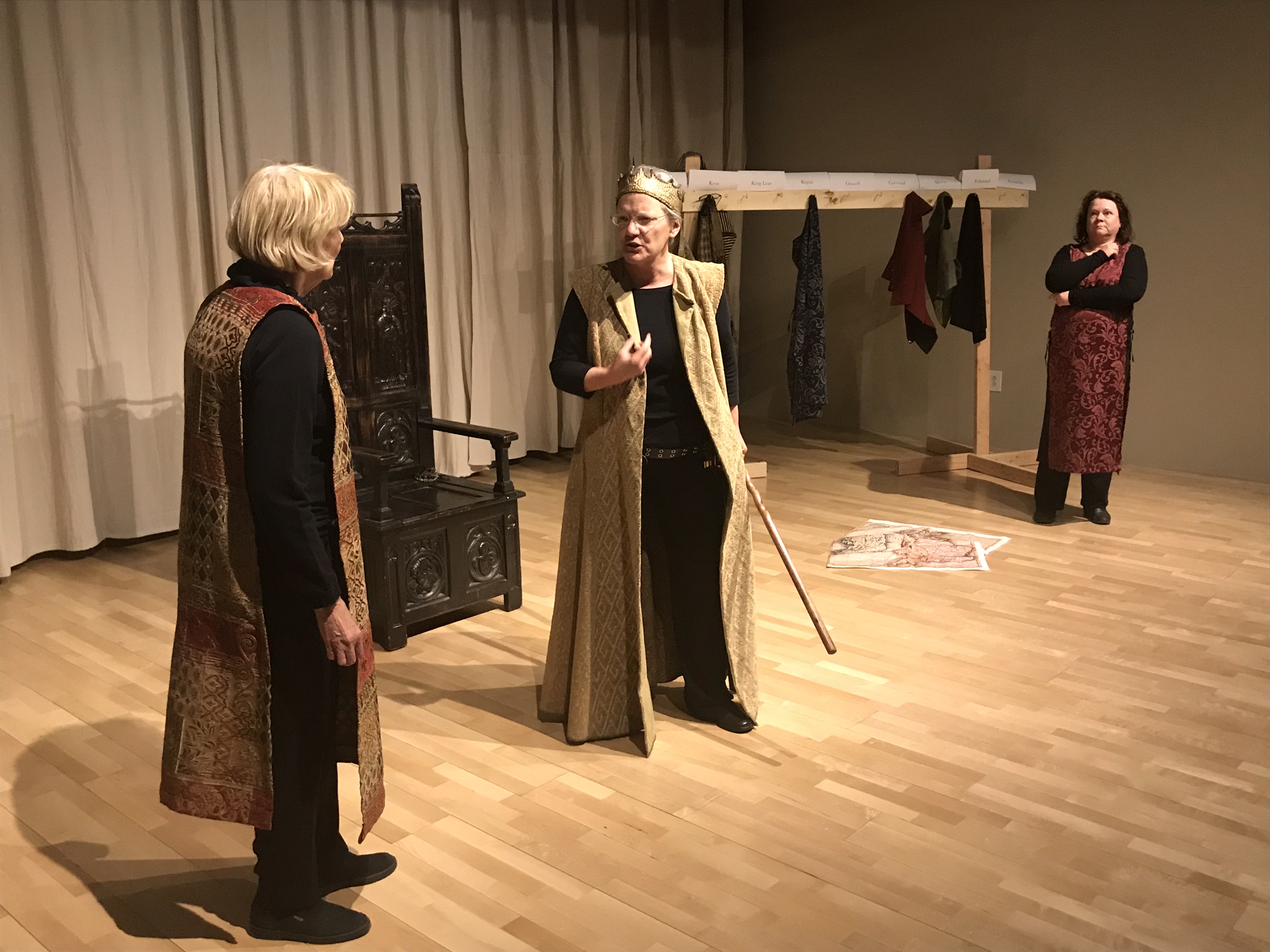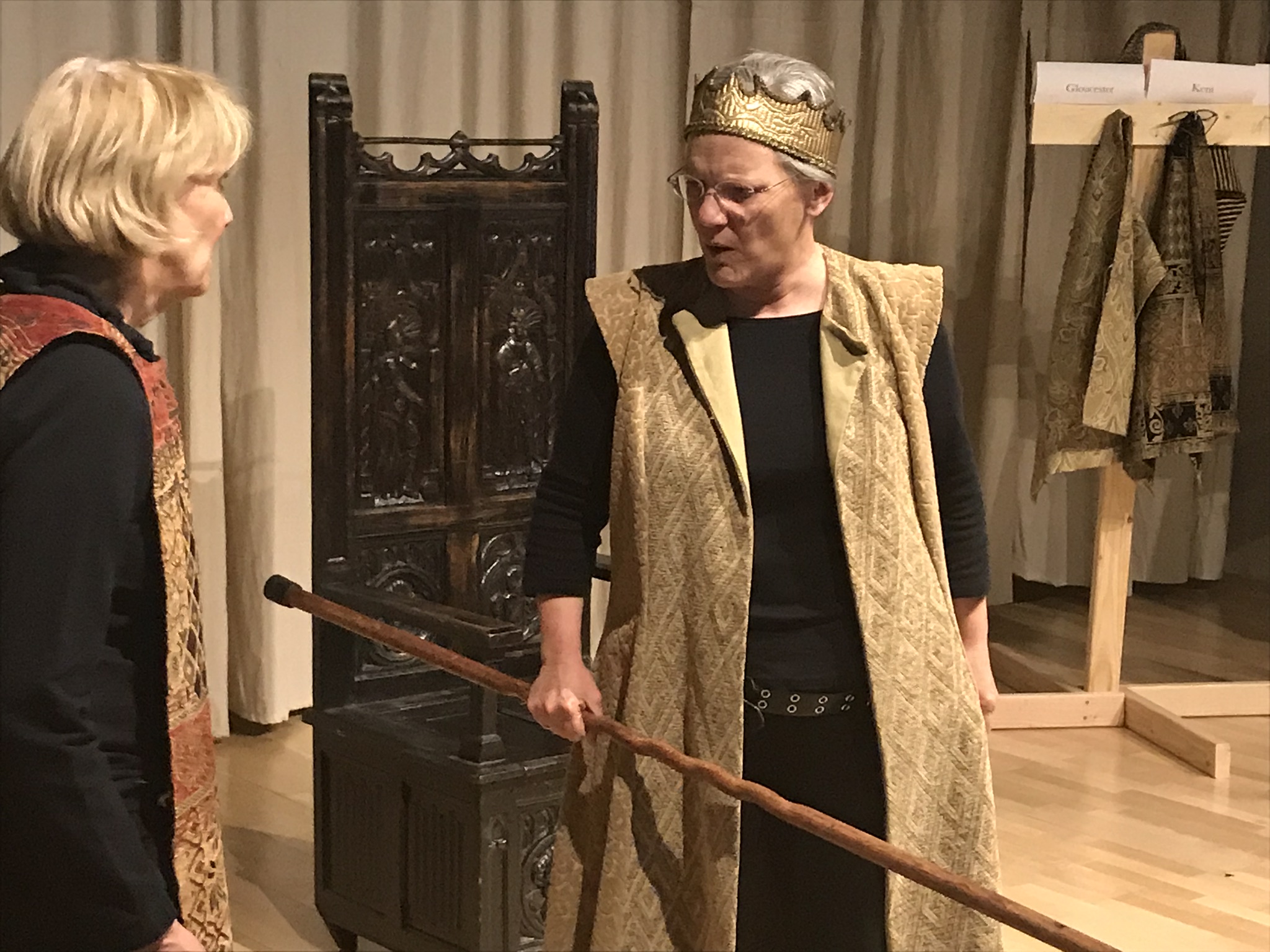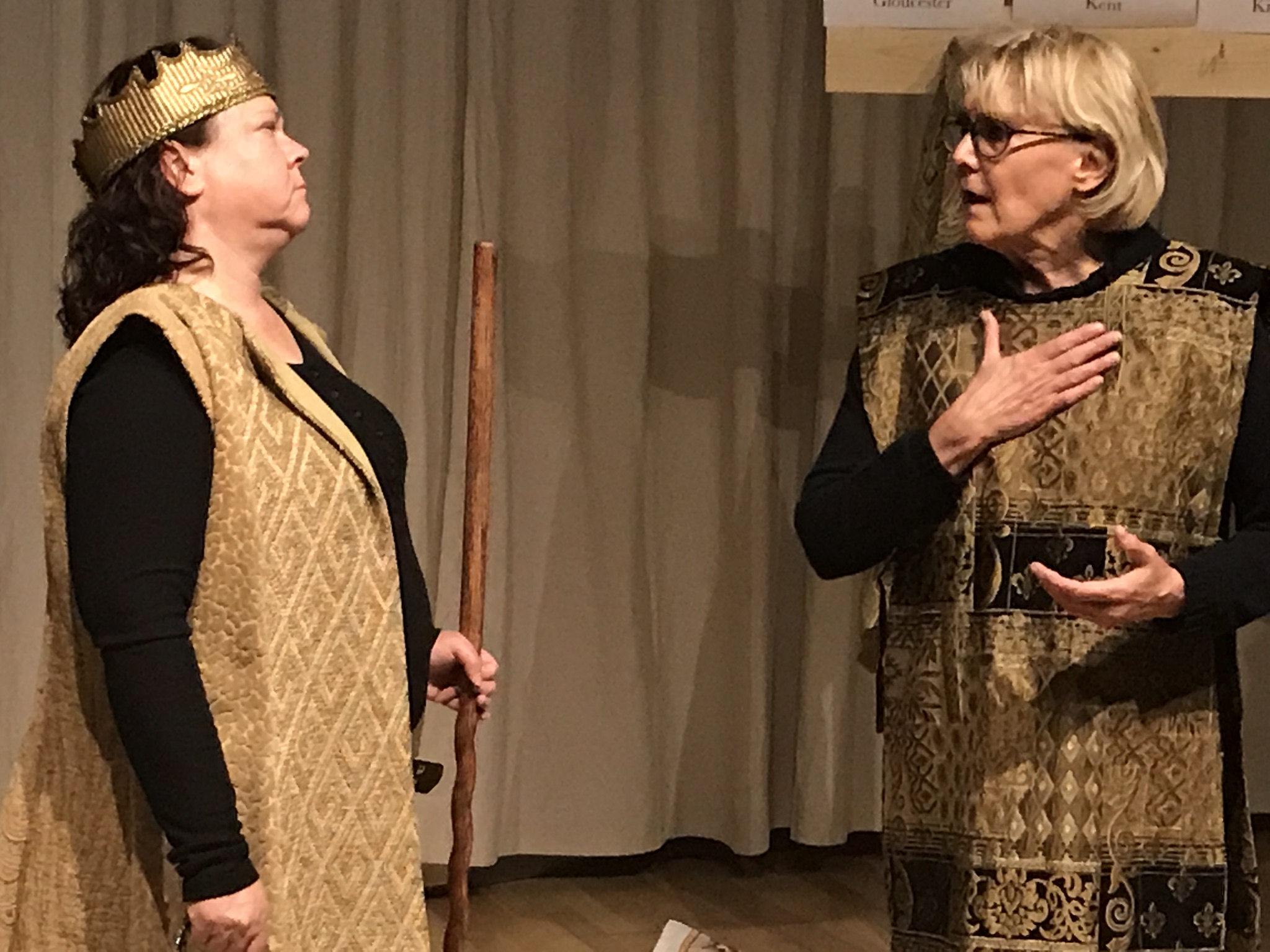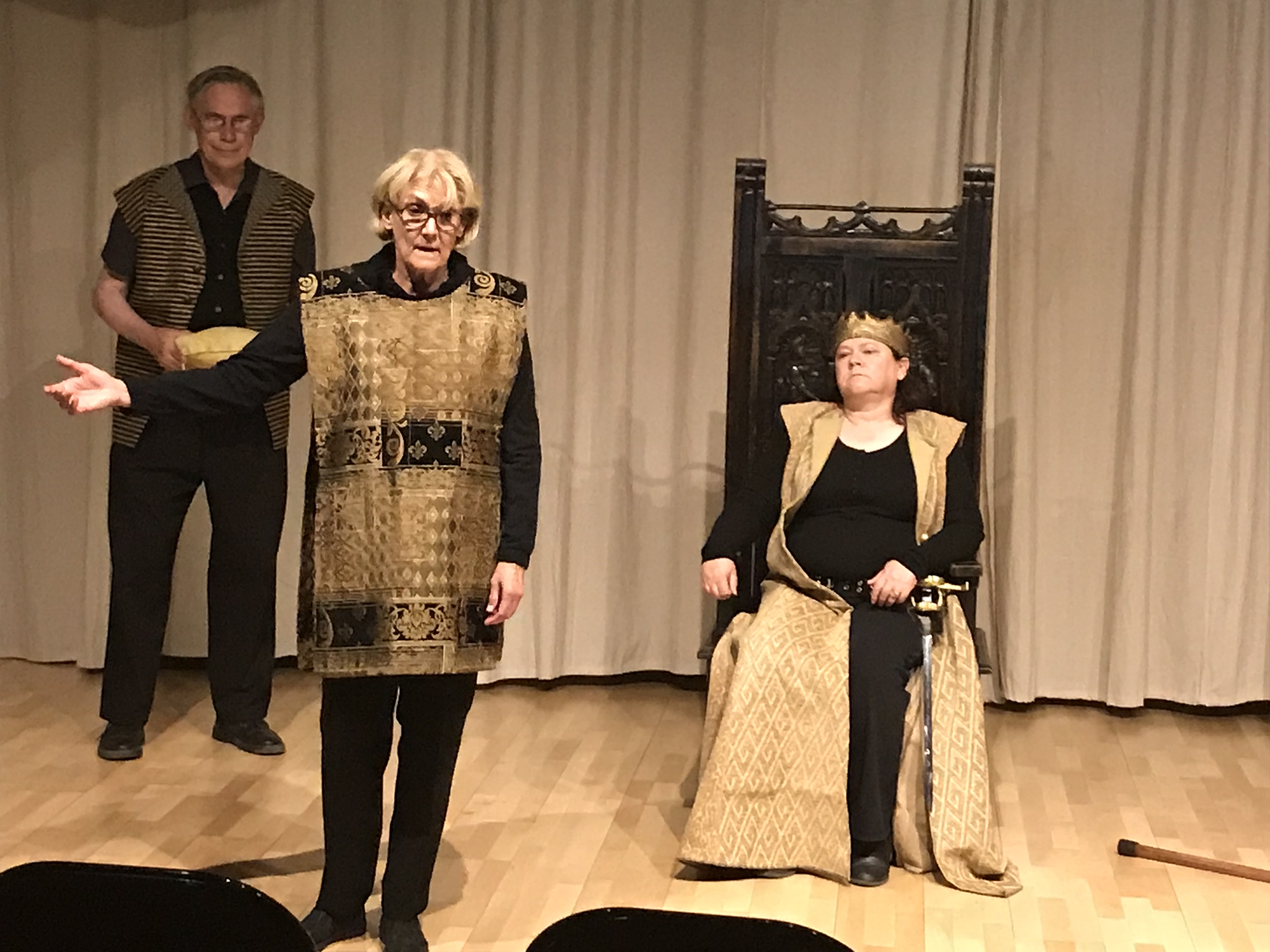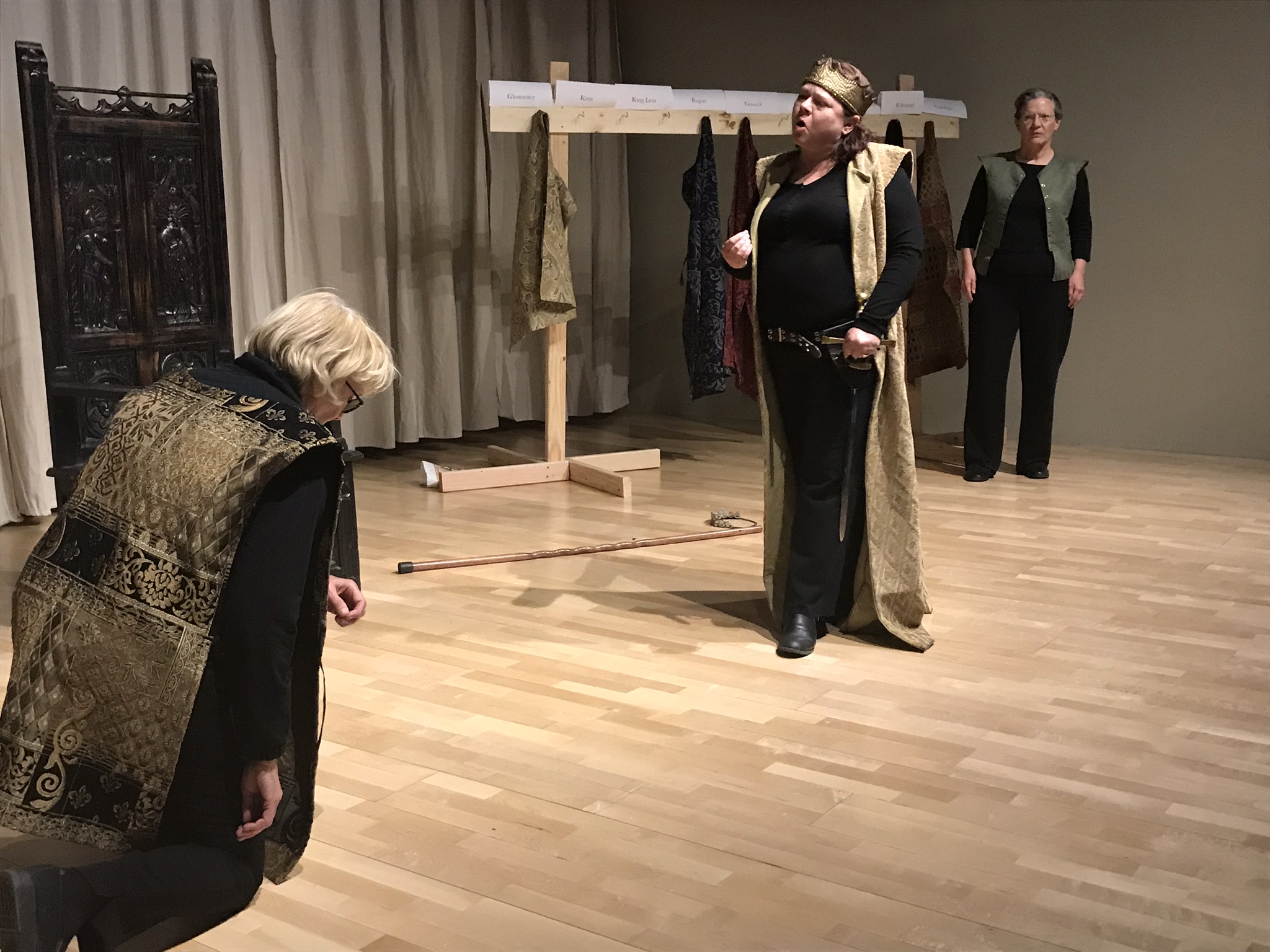I think most theater artists would tell you that some of the best theater comes out of adverse circumstances.
Philip Henslowe:
Mr. Fennyman, allow me to explain about the theatre business. The natural condition is one of insurmountable obstacles on the road to imminent disaster.
Hugh Fennyman:
So what do we do?
Philip Henslowe:
Nothing. Strangely enough, it all turns out well.
Hugh Fennyman:
How?
Philip Henslowe:
I don't know. It's a mystery.
When we loaded our props and costumes in to the Adobe Rose two days before opening, it became apparent that reconfiguring the seating to suit our blocking was not going to happen. We had rehearsed a thrust stage performance with four entrances/exits. We were facing a kind of curved proscenium. With no functional upstage in or out.
In such situations, the mind leaps to problem solving mode: We could.... no, that won't work. We might.... yes, yes, wait, that won't work. And so on. Until a solution is finally hit on.
In this case the solution made a virtue of necessity. There would be no entrances and exits. The cast would sit in lines against the back diagonal curtains and make their appearances and changes in full view.
We would have worked it all out in dress rehearsal. But we lost time when it happened that we lost our lighting technician. For a show that depended on lighting to indicate place and blocking (we were going very bare-bones on the set - we had a throne, a chair to blind Gloucester in, and a small table) not having our light cues as we charged up the learning curve of a re-blocked show seemed disastrous.
How will it turn out well?
I don't know, it's a mystery!
I ran the lights that night myself (not my area of expertise) and so had to schedule another time to come in and finish the dress/tech. This time we had a lighting technician but not all the actors. We refocused lights and tweaked cues as best we could then went home and communicated as much as possible to the cast via email.
Maybe it's having a nearly full house and knowing you're up against terrible odds that sharpens the senses, quickens the mind and spirit, and makes you work at peak capacity. Whatever it was, everyone rose to the occasion.
On the first night, there were some logistical hiccups, but performances were alive and vibrant. Unbelievably, by the second night the actors had relaxed into the environment and new parameters and were delivering those incandescent moments of wide awake theater that come from a deep familiarity and engagement with what you're doing.
I sat up in the tech booth running sound and watching in awe.
Well done, Crows!

